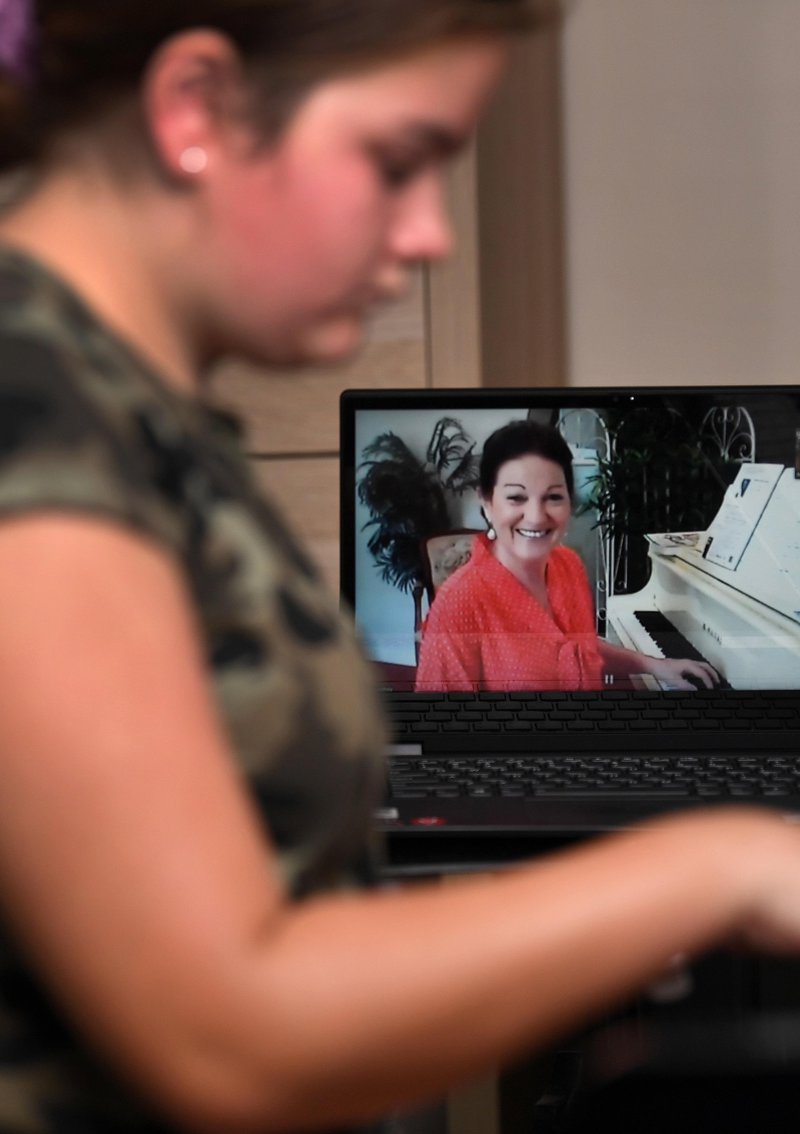THE CULTURAL TIGHTROPE
Virtually social
many young people born here since the turn of the century have had a very comfortable upbringinG
In the spirit of positivity that I vowed to maintain for this column since 2020 started so atrociously, I will endeavour to give parents a little comfort regarding their concerns over their offsprings’ online habits since the start of the pandemic and the seemingly devastating associated effects of lockdown.
My own son has just turned eighteen, and as regular readers will know, he lost his mother to cancer at the start of 2020, just before we were hit by the coronovirus. What you will not know is that he also lost his maternal grandfather soon after that. Perhaps it is not possible to imagine what this past year has been like for him, if those circumstances are added to those of the pandemic.
As his father, I do everything I can to make sure he is emotionally cared for, but one concern I hear a lot is how lockdown has led to young people not being able to socialise and therefore missing out on essential social contact. Before I attempt to put my optimistic slant on that, let me first say that this is undoubtedly true, and being forced to spend so much time at home and without real physical contact with friends and extended family, especially grandparents for obvious reasons, will have left a mark on this generation of youngsters.
However, perhaps the first thing worth mentioning is just what a fortunate generation of youngsters they had been up to this point, at least those living here in Catalonia. No wars, economic comfort and indeed unprecedented material wealth for many, Catalonia being such a well-off country compared to others. In fact, many young people born here since the turn of the century have had a very comfortable and dare I say it even spoilt upbringing. Again, I should point out that I’m not talking about everyone here, but certainly a high number of Catalan youngsters, who are constantly found to be among the happiest children in comparative academic studies on the topic.
Now to the point at hand: what I’ve come to realise after not months but years of pestering my son to “be more social”, by which I meant get out and socialise more, is that it is actually perfectly possible to maintain a highly satisfactory social life online. I can feel parents’ and educators’ wrath as I write these lines, but hang on a minute. Older generations like mine, and especially individuals like myself, who spent their youth attending parties and get-togethers on an almost daily basis, find it simply incomprehensible that meeting online could even come close as a substitute for that face-to-face contact. But we forget that our children are digital natives, and we merely digital immigrants, and although the use of technology can certainly become an abuse, we should be not only thankful but also highly appreciative of the social opportunities offered by modern networking applications. Can you imagine what lockdown would have been like without them? No Skype, Zoom, even Facebook? I won’t mention the newer ones because I haven’t even heard of most of them, but I do know that from the most harrowing of periods what I will always remember is hearing my son through his bedroom door laughing raucously with friends for hours on end to dispel my fears that his lack of social contact would make a miserable year so much worse.



